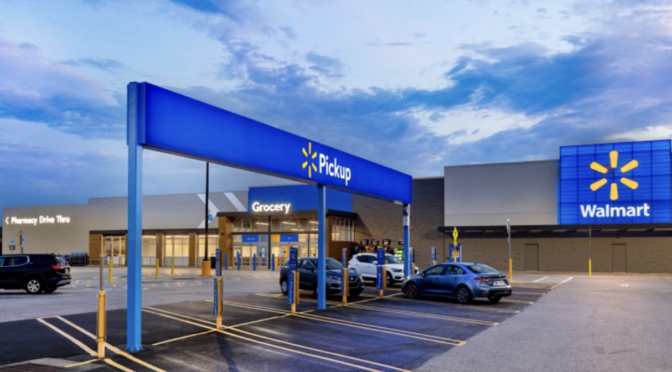
Shoppers are increasingly opting not to shop in person at Walmart following its implementation of anti-theft measures, like putting low-cost products in glass cases under lock and key.

Shoppers are increasingly opting not to shop in person at Walmart following its implementation of anti-theft measures, like putting low-cost products in glass cases under lock and key.
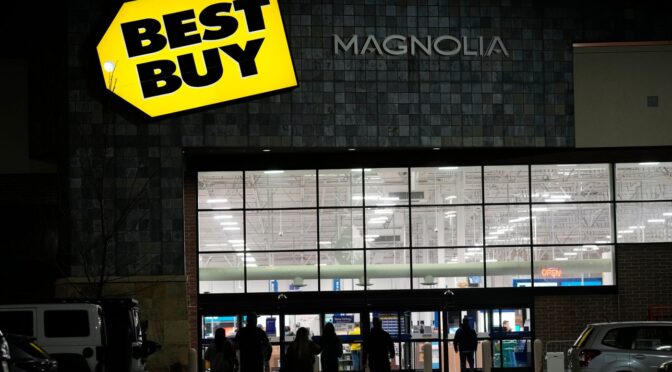
With theft attempts elevated from prepandemic levels, stores are grappling with how to stop the problem without turning off shoppers and investors. Shoppers are finding more empty space on store shelves, but not because the retailer is out of stock. In many cases, the items are locked away to prevent theft.
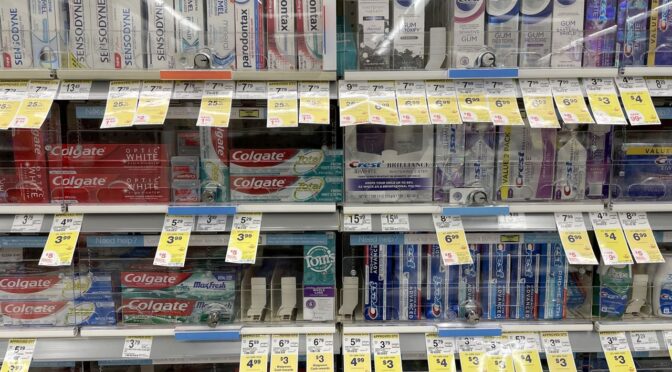
These days, it feels like many stores are fortresses. Most of the products on the drug store shelf are behind lock and key, even everyday items such as deodorant, toothpaste, candy, dish detergent, soap and aluminum foil. Manufacturers that supply lock cases and devices to chain stores have seen their businesses boom.
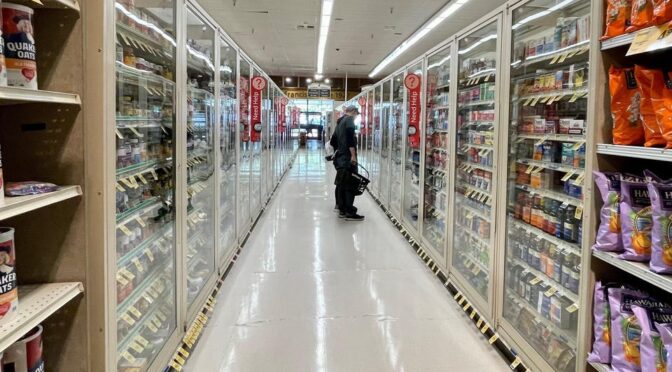
When 29-year-old Jonnai Jones ran out of Aveeno face wash, she headed to the nearby Walgreens in Irvington, New Jersey, to pick some up. The bottle, like many other products, was locked up, forcing her to wait in line and ask an employee at the register to go unlock it and let her buy it.
“The waiting was an inconvenience,” said Jones, who usually tries to remember to reorder products on Amazon before she runs out. “When I do pop in the store in person it’s because I need the item right away.”
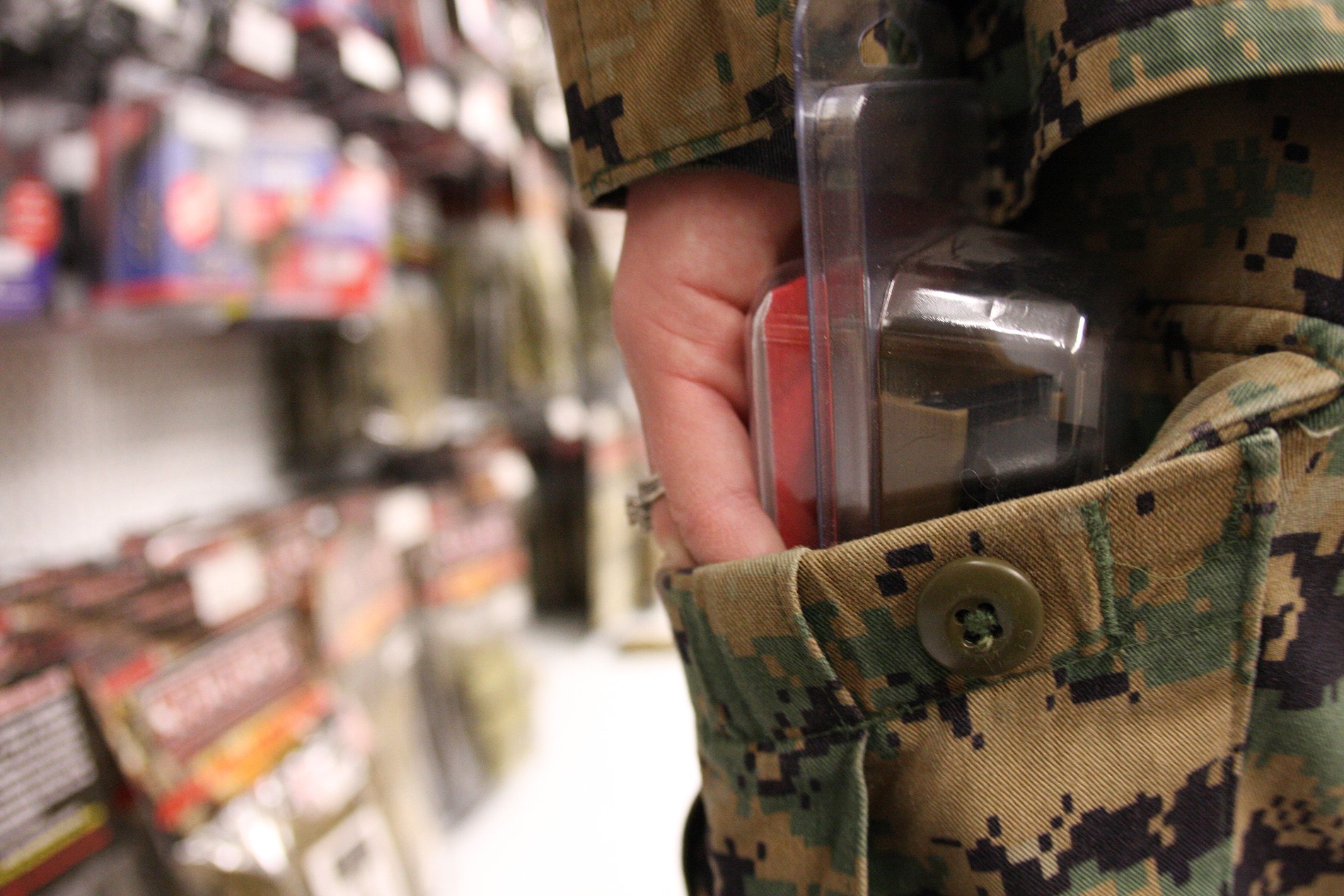
SAN DIEGO – Shopper engagement and loss prevention technology company Indyme Solution, LLC is rolling out a device designed to remind shoppers to practice social distancing amid the coronavirus (COVID-19) pandemic.
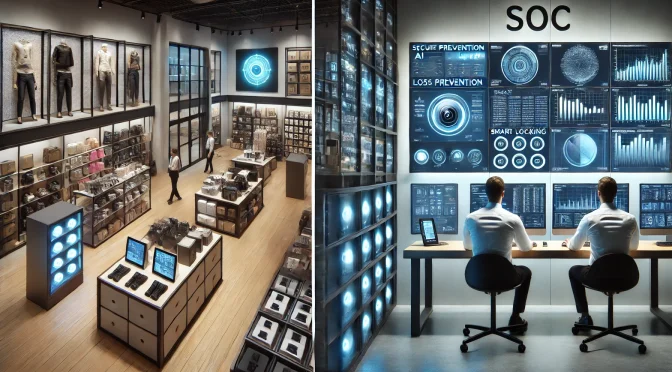
By Hedgie Bartol, LPQ, LPC
Another year, another chance for retailers to get ahead—or get left behind. The world of loss prevention is evolving fast, and 2025 is shaping up to be a year where only the smartest, most adaptive strategies will win. Retailers are facing everything from AI-powered theft to digital fraud, and the right approach is no longer just about locking up merchandise—it’s about using technology and intelligence to outmaneuver criminals. Let’s dive into the trends shaping the future of loss prevention.
(more…)In a recent earnings call, Walgreens CEO Tim Wentworth acknowledged that locking up merchandise to prevent shoplifting has negatively impacted sales. He stated, “When you lock things up… you don’t sell as many of them. We’ve kind of proven that pretty conclusively.”

Indyme Solutions is proud to announce a new strategic collaboration with Sensormatic Solutions, the retail technology portfolio of Johnson Controls, to enhance loss prevention and customer experience solutions. This partnership brings together two industry leaders to deliver innovative tools designed to address key retail challenges while prioritizing shopper satisfaction.
Highlighting the Freedom Case™ and More
Among the solutions now part of Sensormatic’s loss prevention portfolio is Indyme’s groundbreaking Freedom Case™, a self-service locking system that reduces shrink by up to 98% without frustrating shoppers. Alongside this, Indyme’s SmartDome™ and SmartResponse™ solutions improve store operations by accelerating customer assistance, monitoring suspicious activity in real time, and enabling retailers to refine labor allocation.
Collaboration for Smarter Retail
“Strategic collaborations like this one are the key to driving innovation in retail,” said Tony D’Onofrio, President of Sensormatic Solutions. The partnership will allow Sensormatic retail partners to access Indyme’s cloud-based solutions directly through Sensormatic’s sales teams, ensuring seamless integration with existing communications infrastructures.
Read the full Press Release here.
Twenty-seven percent of shoppers said they would choose another retailer or abandon their purchase entirely if they came across locked-up products, but 62% said they would typically wait for assistance from an employee. The survey also found that those unwilling to wait for assistance will spend 21% of their dollars online compared to 18% for those who waited.
Spencer Hewett of Radar underscored the pivotal role of location data infrastructure in revolutionizing retail operations. Radar’s solution to inventory inaccuracies not only addresses the $1.1 trillion in lost sales but also paves the way for a seamless shopping experience. By integrating precise location tracking with inventory management, Radar offers retailers the ability to maintain accurate stock levels, significantly reducing instances of customer dissatisfaction stemming from unavailable products. This technology, when deployed across apparel retail, has the potential to elevate inventory accuracy from a mere 65-70% to near perfection, showcasing a path toward minimizing sales loss and enhancing customer satisfaction.
Locked cases, security turnstiles, AI-equipped cameras, receipt scanners, off-duty cops, license plate recognition — retailers are piling on anti-theft technologies as shoppers grit their teeth.
People tend to hate going to a store and finding deodorant, toothpaste, shampoo, cosmetics and other everyday products locked up on shelves behind display cases. Now, some stores are testing a new way to let customers open the locked displays.
Retailers are locking up just about everything to curb shoplifting. Would using an app to open cases make in-person shopping less annoying?
Shoppers across the US are increasingly forced to make an uncomfortable choice when they want to buy something — say, a vibrator — at their local drugstore: ring a bell to summon an overworked retail employee, or walk away. More stores are locking away merchandise amid rising concerns about retail theft.
When the pandemic threat eased, Maureen Holohan was eager to scale back her online shopping and return to physical stores so she could more easily compare prices and scour ingredients on beauty and health care products for herself and her three children.
Shoppers across the US are increasingly forced to make an uncomfortable choice when they want to buy something — say, a vibrator — at their local drugstore: ring a bell to summon an overworked retail employee, or walk away. More stores are locking away merchandise amid rising concerns about retail theft.
Retailers have seen a recent increase in these incidents, and grocers are particularly at risk because of the wide variety of sought-after items they sell.
Grocers have long contended with store theft. But over the past few years they’ve seen an unsettling rise in a new kind of retail crime — one that is often carried out by groups of individuals who are able to get around traditional store security measures.
NEW YORK (AP) — When the pandemic threat eased, Maureen Holohan was eager to scale back her online shopping and return to physical stores so she could more easily compare prices and scour ingredients on beauty and health care products for herself and her three children.
But that experience was short lived. In the past six months or so, CVS, Target and other retailers where Holohan shops have been locking up more everyday items like deodorant and laundry detergent as a way to reduce theft. And the 56-year-old Chevy Chase, Maryland resident is now back to shopping online or visiting stores where she doesn’t have to wait for someone to retrieve products.
In September, on an earnings call with investors, Rite Aid’s executive vice president of retail, Andre Persaud, floated an idea to improve the chain’s performance in New York City: turn the drugstore into one giant vending machine in order to fight shoplifting. “We’re looking at literally putting everything behind showcases to ensure the products are there for customers to buy,” Persaud said.